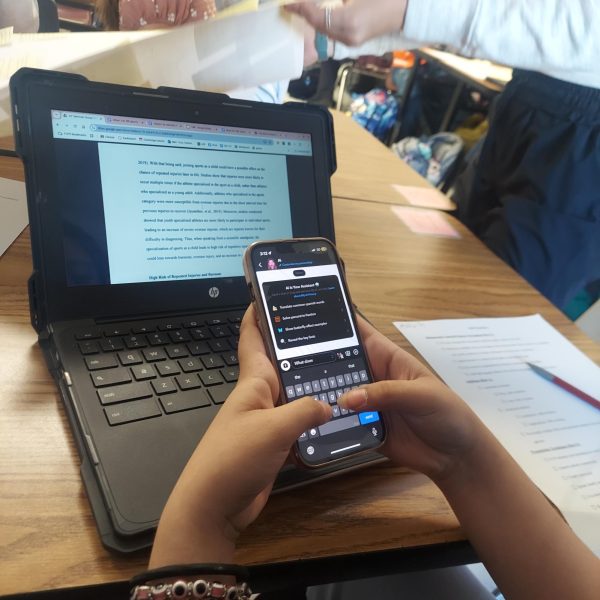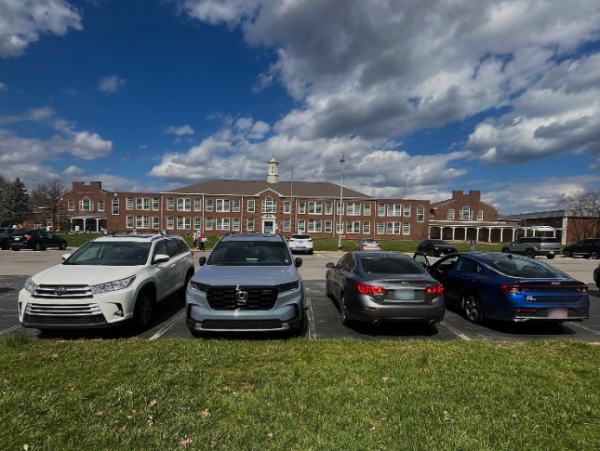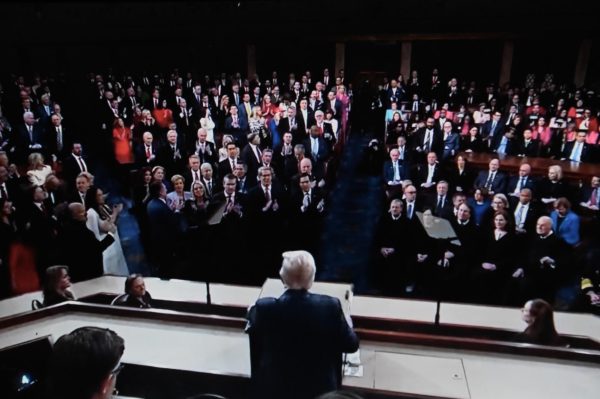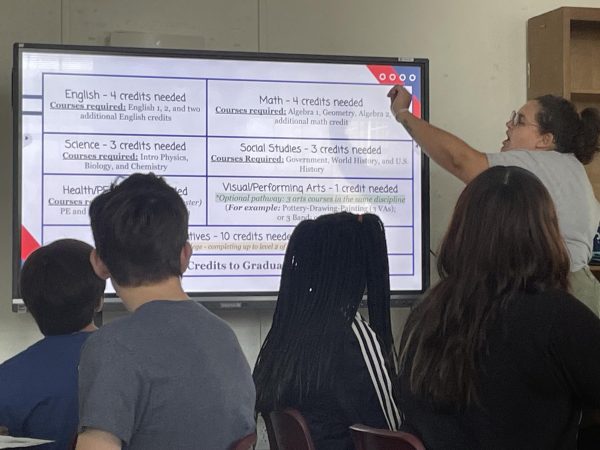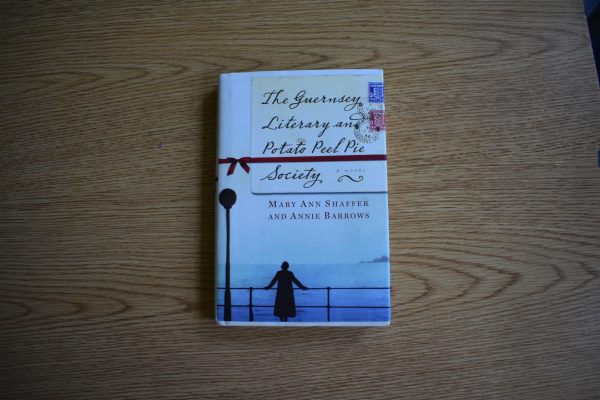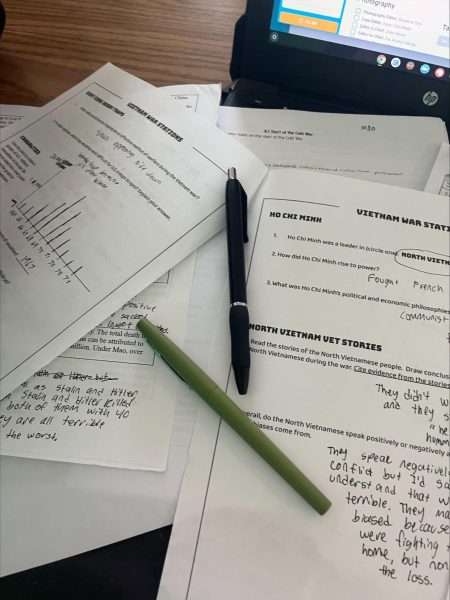Kentucky “Don’t Say Gay” House Bill 173 and 177
Lafayette students gathered outside of school on February 24th to protest multiple anti-LGBTQ+ bills that are being proposed by Kentucky lawmakers.
House Bills 173 and 177 have recently been introduced into the Kentucky Legislature. These bills fall under the category of “Don’t Say Gay” bills that have recently been sweeping the nation. These bills are meant to marginalize LGBTQ+ people and restrict programs that may help them learn and feel comfortable about their gender and sexuality. These bills began to gain popularity after a bill restricting education about the LGBTQ+ community until third grade was passed in Florida. This Florida bill also made it so parents would need to be notified if their student would be learning about LGBTQ+ history or issues.
One of the points in House Bill 173, introduced in Kentucky on the 7th of February, reads that the bill aims to “establish limitations on school personnel related to instruction and discussion on sexual orientation, sexual preference, or gender expression.” As it says, if this bill were passed, it would no longer allow teachers to freely include points in their curriculum teaching about LGBTQ+ history or issues. It would also keep them from speaking to their class and individual students about things related to the LGBTQ+ community.
House Bill 173 would also not allow people who identify as a different gender than their biological sex to use the bathroom dedicated to their preferred gender. Group C, under section 4 of the bill, claims that it will “create a cause of action for those who are forced by a public school to share private quarters with specific people of the opposite biological sex and provide exclusions.” This section of the bill would, instead of “forcing” cis-gendered people to use the bathroom with transgender people, would force transgendered people to use the bathroom of their biological sex or travel around the school to use a private bathroom, which not all schools have. It would also force transgender students to share a locker room or hotel while on a field trip with other members of their biological sex.
Another phrase in House BIll 173 would restrict teachers from discussing their sexual orientation. This would prevent any discussion with their class about their families. It would also prevent teachers from being able to share their pronouns with the students in class, even if they were cisgender. They would also no longer be able to display any Black Lives Matter or Pride flags or banners in their classroom. These signs are essential, because they show marginalized communities that their teacher supports them.
Tacked onto the end of House Bill 173 is a clause about bullying. The final few points of this bill read, “ [to] establish a parental right to expect a child will not be bullied at school and require public schools adopt policies to ensure notification and support of bullying victims, require an order of reporting to staff, require specific time requirements for investigations; provide for an appeal and review of incidents; require identification of actions to prevent future acts of bullying or retaliation; require procedures for supporting victims.” This small section at the end of the bill makes it seem that the goal of the bill is to protect students when in reality, this bill may very well cause more bullying for LGBTQ+ students if they are forced to use a bathroom that does not align with their gender identity.
Another bill that has recently entered the Kentucky legislature is House Bill 177. This bill mixes the “Don’t say gay” and “Don’t say Trans” laws with a law about privacy. House Bill 177 would restrict counselors from speaking about mental health with a student without parental consent. If a discussion about mental health took place, it would also require the counselor to provide a report about the meeting to a parent. This bill might reveal the sexuality or gender identity of a student to a parent if they discussed anything of that sort with their counselor. Even if a student has not revealed their sexuality or gender identity to that parent, it would still have to be told to them if they had spoken to their counselor about it.
Zoe Johnson, a sophomore and Gender and Sexuality Alliance member, spoke about her opinion on the bills. She freely discussed her thoughts on bill 173 and how it could influence education.
“I think it is very important that we learn about LGBTQIA+ History. I feel like it’s not touched on enough in schools.”
When asked what she thought would change if schools banned discussions about LGBTQ+ history and issues, she responded with the following. “I think there are so many things [that would change]; I think the most important thing is that people will not be informed about these issues. If people aren’t informed that means that they make assumptions based on things that are untrue, which can lead to a lot of hurt for people.”
Sophomore Braden Hardman, who identifies as a cis-straight male, spoke about what he thought about learning about LGBTQ+ history and issues in class. “I find it interesting to learn about LGBTQ+ history. I’m always open to it, and I don’t see it as any different from learning any other type of history outside my identity.”
Zoe Johnson also spoke on how kids are uninformed about LGBTQ+ issues and sometimes make fun of them. ”I have heard things from very young kids that should not be said about [LGBTQ+] people. I don’t think they mean it [though], [they] just don’t know. And if we don’t know about these things, there is no way we can learn to improve as time passes, and that means that history has a better chance of repeating itself, and we cannot let that happen.”
Lastly, Johnson responded passionately when asked if it was right for the state to allow teachers and administrators to refuse to use a student’s preferred name and pronouns.
“Absolutely not. Do you know how many people are going to be hurt by that? Students are sharing their pronouns with [teachers] because they are people they can trust. [The teachers] would just disregard [the students’] trust, and that’s absolutely not okay. It is dangerous; I [also] don’t think that people realize that it’s legitimately dangerous for students who struggle with their mental health. “
Braden Hardman also spoke about whether he had ever experienced a time when he was impacted by a trans student in the bathroom. He responded with the following. “No, I haven’t experienced any problems sharing a bathroom with someone identifying as male but biologically female. It’s only happened to me maybe once ever, and I didn’t care. Everyone in the bathroom is just trying to get done and leave anyway.” Hardman said he had never felt forced to share private quarters with someone of the opposite biological sex, even though House Bill 173 makes it seem like a universal issue.
Although House Bills 177 and 173 are predicted to pass in Kentucky, they are also predicted to be questioned as a violation of the first amendment. This questioning will bring them to be challenged further. These bills threaten the rights of many in Kentucky, so contact your local representatives and tell them how these bills would impact you.

Joey Hester is a senior in their third year of journalism. They return this year as Co-Editor-in-Chief after working last year as a copy editor. They are...


